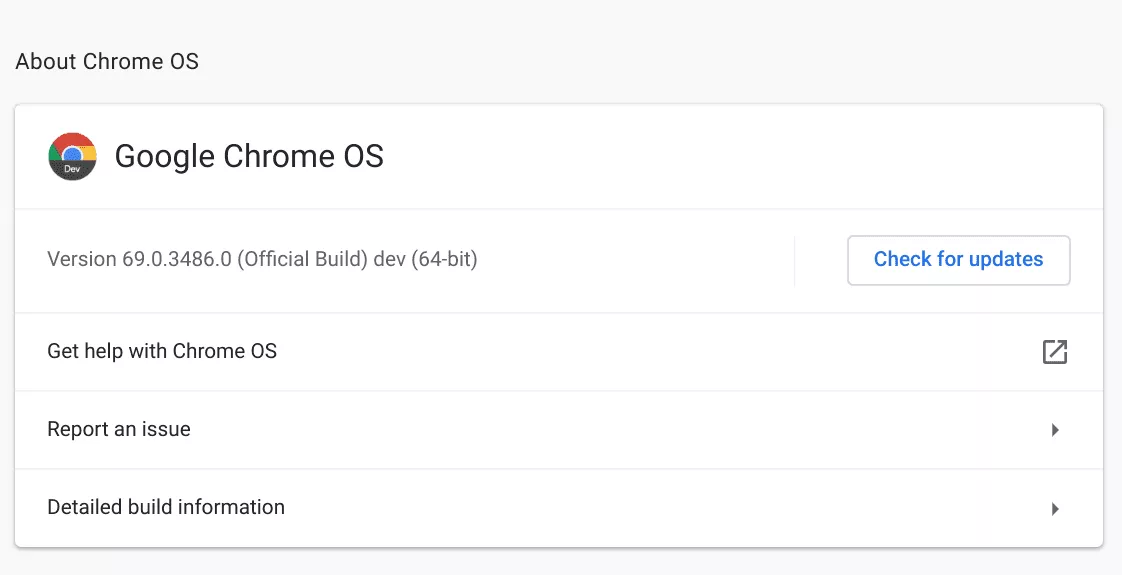ChromeOS 69.0.3486.0 brings several minor changes but introduces a few new bugs

ChromeOS 69.0.3486.0 was pushed out to several devices yesterday in the Developer Channel and while unlike ChromeOS 69.0.3464.0, this build is quite stable – unfortunately there are a few are a few minor bugs that users should be aware of. After using the build for a few hours, here is what I have been able to find;
Disclaimer: This Page Has Been Archived
Please note that this blog post has been archived and may contain information that is outdated, defunct, or covers topics that are no longer of interest. It is being kept available solely for reference purposes, in case others might find portions of it useful.
For more recent and up-to-date tutorials, I recommend visiting KMyers.me or other websites that specialize in the topic you are interested in. It is always advisable to seek the most current information to ensure accuracy and relevance.
Bugs
Smart Lock Broken
One of the best features of Chrome OS is the ability to unlock your Chrome OS device without a password by simply having a supported Android phone within a few feet of your machine. This feature seems to now be broken on devices after upgrading to the new build of Chrome OS, even after adding and removing my phone. I did enjoy using this feature and hope it gets resolved very soon.
Pin Authentication Broken
If you do not want to enter your password every time you log into Chrome OS and do not have or wish to use your phone to unlock your account, you can normally setup a 6+ digit pin code to use in place of your password. Sadly this has also stopped working after upgrading. I did try to remove my pin and re-add it without success. This may be more painful for Chrome OS Tablet and users with complicated passwords like myself so I am hoping this gets resolved fairly quickly.
New Features
New Hostname Resolution Scheme in Containers
Hostname resolution for Crostini Containers first landed withChromeOS 68.0.3440.4 back at the end of may, it was crude but worked for many use cases such as ssh and resting simple web applications. Unfortunately it was limited as http://linuxhost cannot act as a secure origin which is needed for many complex web applications that need to communicate with the web browser (such as WebRTC). This has been replaced with a new format – containername.linux.test – This means you should usepenguin.linux.test if you are using the default setup. http://penguin.linux.test for example will allow you to access a web server if you have a web server running in your container.
LXC Upgrade to 3.0
Chrome OS Containers run on LXC, this has seen a version bump to 3.0. This is a much more recent build from March of 2018.